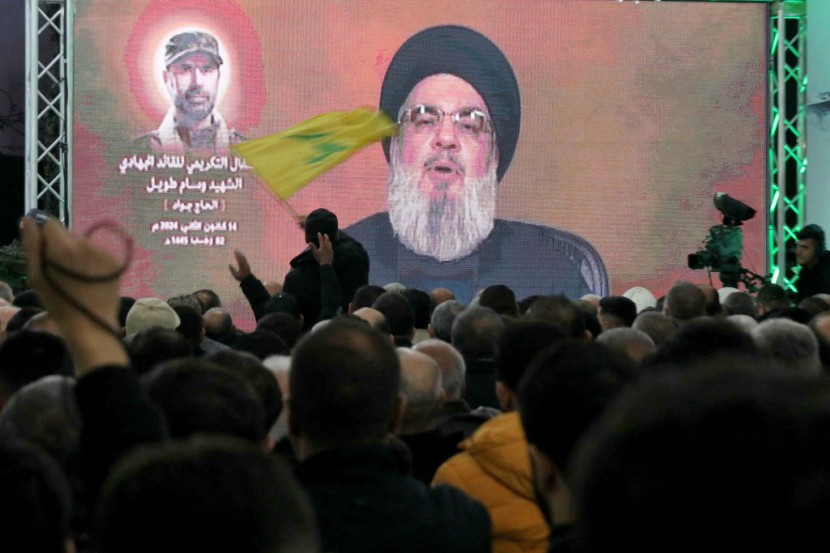Hassan Nasrallah, the leader of the Lebanese group Hezbollah, accused US actions in the Red Sea of damaging Houthi's maritime security in Yemen.
The Houthis of Yemen declared that they would keep up attacks despite US and British strikes, which turned the Red Sea into a conflict zone.

On Sunday, Nasrallah released a televised speech and said that the US needs to understand that ending the conflict in Gaza is the only thing that will ensure the security of the Red Sea, Lebanon, Iraq, and Yemen.
Nasrallah said the US was wrong if it thought the Houthis would stop challenging Israel in the Red Sea. "Rather than providing a remedy to the symptoms, they should treat the cause," he added.
"The more dangerous thing is what the Americans did in the Red Sea will harm the security of all maritime navigation, even the ships that are not going to Palestine, even the ships which are not Israeli, even the ships that have nothing to do with the matter," he said, "because the sea has become a theatre of fighting, missiles, drones, and warships.
The Lebanon-based group has not yet joined the conflict. However, it has maintained intense pressure on Israel by conducting nearly daily attacks along its southern border with its neighbor.
According to Al Jazeera, Nasrallah was referring to a joint operation between the air forces of the US and the UK that launched a series of strikes against Yemen on Friday and Saturday. The strikes were directed at the Houthi rebels, who claimed they had been attacking ships linked to Israel during the war on Gaza.
The strikes were directed at Houthi facilities and have increased worries that the Gaza conflict may spread throughout the region. Furthermore, the Houthis have vowed to strike back.
The Houthi assaults against international shipping have caused disruptions to international trade and increased costs, leading Western nations to intervene. The Houthis have vowed to continue their actions as a response to Israel's war as long as the bombardment of the Gaza Strip continues.
Iran backs both the Houthis and Hezbollah and also forms part of the so-called "axis of resistance" to Israel.
Hamas Leader Killed in Beirut
In the first week of January, the tensions escalated after a senior Hamas leader was killed in a suburb of Beirut in a targeted attack widely attributed to Israel. At least three more Hezbollah members, including a senior commander, were also killed.
Thousands have been forced to evacuate on both sides of the border due to the ongoing gunfire, which has increased military pressure. Around 96,000 Israelis are currently residing in temporary accommodation, a situation that Hezbollah says it plays in its favor.
Nasrallah said that their front was inflicting losses on the enemy by putting pressure on the displaced, whose voices have grown louder.
Imran Khan of Al Jazeera, reporting from Ebel el-Saqi in south Lebanon, said this has been a key strategy for Hezbollah. He claimed that Nasrallah wanted the Israelis who had to leave their homes in the north and could not come back to rise and start putting pressure on the Israeli government.
Related Article : US, UK Attacking Houthi Rebels in Yemen-What We Know So Far
© 2025 HNGN, All rights reserved. Do not reproduce without permission.








